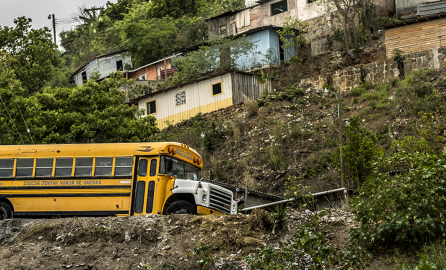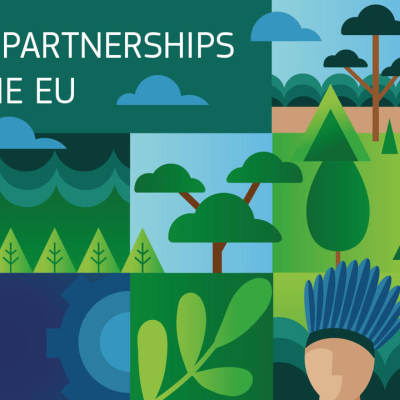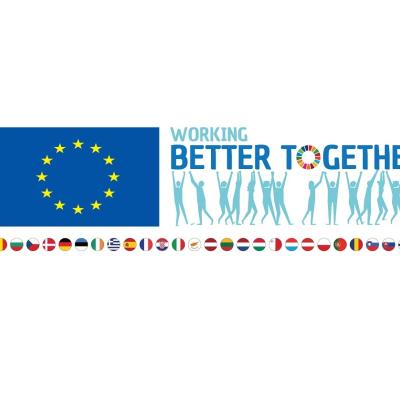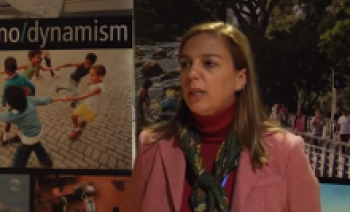With €235 million allocated for the 2014-2020 period, Honduras represents the second largest EU portfolio in Latin America, after Bolivia. Former EU Head of Cooperation (2015-2017), Madeleine Onclin, discusses rule of law and engagement modalities.
Capacity4dev (C4D): How is the EU involved in Honduras and the region?
Madeleine Onclin (MO): We have three Member States present in Honduras: France, Spain and Germany. Other countries work with us from a distance, including the UK, which is based in Guatemala. We also have regular visits from Holland, Sweden, and Denmark. In Honduras, we work in four sectors: food security and nutrition, decent employment, rule of law, and forestry.
We have a wider regional programme for Central America and often collaborate with colleagues in Nicaragua, El Salvador and Guatemala. We have regular meetings with the Heads of Cooperation from these countries, along with having organised networks of programme managers.
Learn about Honduras' engagement with the EU’s Voluntary Partnership Agreement on Forest Law Enforcement, Governance and Trade (FLEGT) to fight illegal logging in the following video:
C4D: What are the key challenges at a national and regional level?
MO: Honduras faces many challenges due to being a low-income country with much violence and insecurity. Problems of corruption and impunity pose major challenges as well, but it’s especially hard to have development without security, or security without development.
Insecurity in Central America is very, very, problematic. High chronic criminality occurring trans-nationally means that there is no sense in dealing with security purely on a national level. Solutions must be found at a regional level, with security as a key pillar of the regional programme.
In Honduras, we are working on reforms in the justice sector, assisting with human rights and mechanisms to protect human rights defenders, and fostering the participation of civil society. However, an international focus is what will allow for lasting stability.
C4D: You mentioned rule of law as one of the three main sectors you focus on – could you share a bit about the programmes that have addressed this?
MO: We’ve had two main projects, which addressed rule of law, that were started in the previous programming period. EuroJusticia was launched in collaboration with the Spanish Agency for International Development Cooperation (AECID), with the goal of assisting the reform of the justice sector, along with pushing for transparency and less impunity, and is ongoing. We also had the Technical Assistance for the Support of Human Rights in Honduras (PADH), which has now concluded and worked on human rights and rule of law.
There are two projects in our current programming. One is called EuroACT, to promote transparency and fight against corruption, which we are in the process of implementing. We are also preparing one which will be called Pro Derechos, scheduled to begin in 2018, which will focus on human rights and civil society participation. An ongoing involvement is really important, as the EU is seen as the main partner of the country in supporting the respect of human rights.
C4D: Are any of these projects working on tackling electoral corruption?
MO: Yes, tackling corruption is part of EuroAct’s objectives. There are two components to this: to support the Mission to Support the Fight against Corruption and Impunity in Honduras (MACCIH) and to work with youth populations. Through this, we hope to reduce the acceptance of corruption among youth and counter a culture of impunity, drug trafficking, and gang involvement so that young people do not think this is normal. Corruption is also being addressed under budgetary support as part of the eligibility criteria and through the EU Election Observation Mission to Honduras.
C4D: Could you share some lessons learned from PADH – was the project successful?
MO: PADH was successful because it worked at multiple levels. At an institutional level, we worked with the Ministry of Justices and Human Rights on the implementation of the National Strategy for Human Rights. The project also created a mechanism called the National System for the Protection of Human Rights Defenders (DDHH), which has since received additional support from the United States Agency for International Development (USAID) and the United Nations Office of the High Commissioner for Human Rights (OHCHR). PADH also provided support to the National Committee for the Prevention of Torture, Cruel, Inhuman or Degrading Treatment (MNP-CONAPREV), which we found to be very effective and hope to keep supporting with the upcoming Pro Derechos project.
C4D: What role does the evaluation of past projects, including PADH, play in programming for future ones?
MO: Recommendations presented from an evaluation of the PADH project are being taken into account in the design of Pro Derechos. The evaluation report was shared with headquarters in Brussels, along with thematic and geographic teams. We have also shared with Member States, namely Spain, given their involvement with us in working on rule of law.
We are further taking into account recommendations from an audit conducted in February of last year by the European Court of Auditors in our project formulations. These included not spreading resources across too many institutions and focusing on achievable impact – so for our next project, we will focus in on the main issues to efficiently support human rights and civil society participation.
C4D: Have you received any feedback from evaluations that surprised you or that you were not expecting?
MO: Nothing was really surprising to me in the evaluation of PADH. For example, there was a recommendation to reduce the turnover of staff, which is obvious as turnover leads to a loss of knowledge, experience, and continuity. We also had an evaluation of EuroJusticia, which recommended that we establish a coordination structure between the two existing components of the organisation, as none existed. Now, the delegation has taken the coordination role and in the future we will make sure that a coordinating structure always exists.
C4D: What different types of modalities do you use to support these projects; are you engaged in budget support and joint programming in Honduras?
MO: Our engagement is about evenly split between budget support and project based approaches. Budget support is very much used in Honduras, mainly in the forestry sector and to address food security and nutrition. The EU is involved in budget support, but not the Member States. We are reestablishing a working group on budget support, mainly with the banks, with the World Bank… We want to work with the Ministry of Finance obviously and the International Monetary Fund (IMF), among others.
We are currently preparing substantial budget support for the employment sector, as it is one of the country’s priorities. We also have a lot of policy dialogues on forestry, employment and food security. Regarding human rights and the rule of law, we are mainly working under a project approach, having projects with ministries, delegated cooperation with Member States, and civil society.
We do a lot through joint programming, not just through a single joint programme for everyone working in the country, but through joint actions, analysis, policy dialogues, and responses to different challenges. Currently we are finalizing a joint analysis which was conducted through a participatory dialogue with the different Member States, which will inform the next step of a joint response.
It is very timely because of the elections this year – we will be able to accompany the new government in 2018 with a joint response and are already well advanced with the division of labour. As mentioned, the EU is working in the food security, employment, rule of law and forestry sectors. Germany is working in the climate change, environment and forestry sectors. Spain is working on governance and rule of law, while France is working on culture. We are quite well organised already.
We came to an understanding during the joint analysis, so we believe that the joint response will be clear and give us the strongest position for policy dialogues. We will also be stronger and more visible so that we can be more efficient at the European level. Joint programming is good for the division of labour, so we can have specificities for each institution, be it the delegation or the Member States. These bring knowledge and experience, which results in a better impact.
C4D: What about the challenges for joint programming?
MO: Confidence - we have to build confidence, and this means that we need a lot of meetings, discussions, and opportunities to share views. We have to reach a common understanding, which I think the joint analysis will help us do.
Another challenge is the programming of different institutions, but in Honduras it seems that 2017-2018 is the right period for new programming. We will take the opportunity of the midterm review at the level of the delegation. Spain and Germany are also conducting new programming exercises, so we can overcome this challenge.
The last challenge that I see is in implementation, as programming should not focus too much on the implementation measures. What is important in joint programming is to have the big picture; to be clear on the analysis, the main issues to focus on, the division of labour… the joint response comes later, along with discussions on implementation.
C4D: What actions are you planning next in order to move from the joint programming roadmap towards a joint strategy?
MO: This is the next step after the joint analysis. We will work with headquarters and Member States to determine the steps in defining a joint response and its priorities while following the joint analysis.
Luckily, we can draw on past efforts for the division of labour. According to the main issues to tackle, we will determine the most relevant partner, followed by an in depth analysis of the relevant sector to make sure that we have an impactful and efficient response.
Image credit: A. Aragón/EU/ECHO via Creative Commons license 2.0









Log in with your EU Login account to post or comment on the platform.